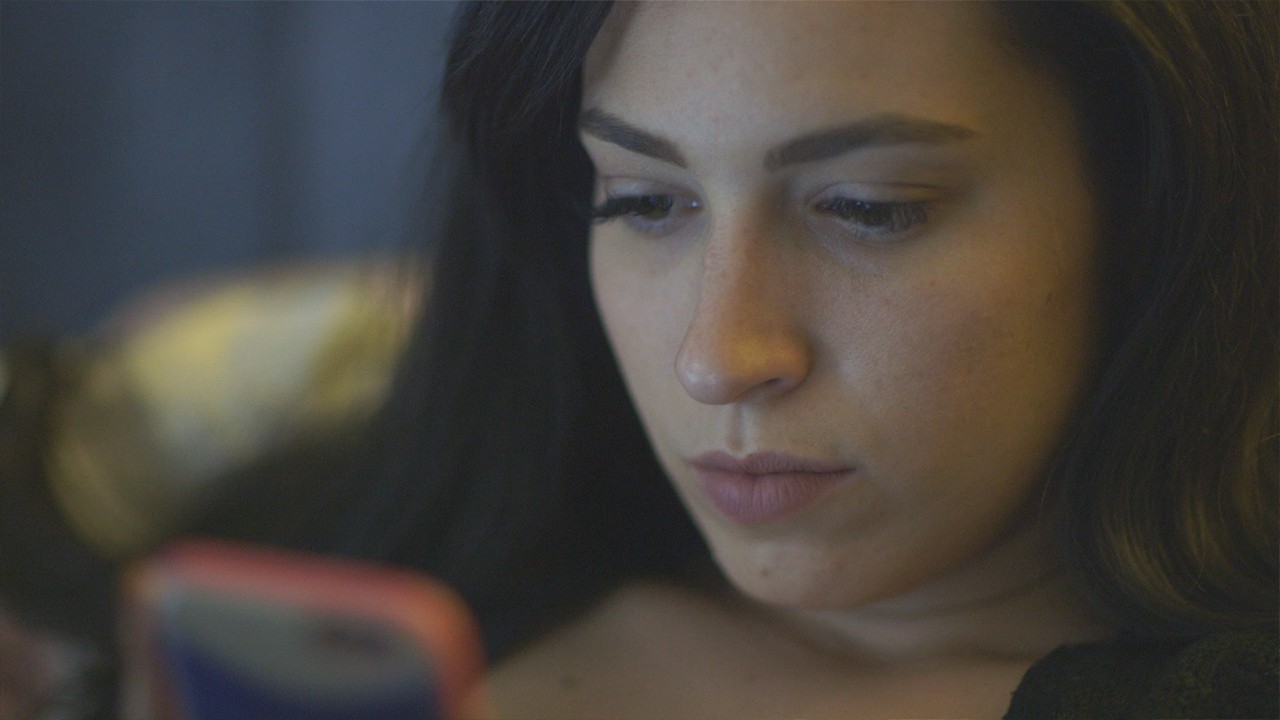Broadly is partnering with the Global Drug Survey, the biggest drugs survey in the world, to find out more about women's drug consumption, including how you buy drugs, use them, and what you would change about your own habits and the legal system. The Global Drug Survey takes about 15 minutes to complete. Want to have your say? Check out the survey site.This article originally appeared on Broadly Germany.
Advertisement
"In the beginning, I hated the drugs. To me they seemed like another woman, a competitor he loved more than me," says Anna*. For several years, she was in a relationship with a man who smoked weed and did coke almost daily. From day one, his problem was also hers—at least until she realized that she couldn't win the fight against his addiction.When Zeit Online asked around 32,000 people on the internet to talk about their drug use as part of the Global Drug Survey 2014, 86 percent of respondents said they had used illegal drugs at least once. The Drug and Addiction report, which the German federal government publishes annually, found a 19 percent increase in drug charges in 2016 from the previous year. According to the report, young men are particularly vulnerable: "Not only are [young men] consuming more illegal drugs than ever before, but they're doing so more often."These studies point to the widespread reality of drug abuse, but people in relationships with addicts are invisible in such research, and they're often invisible to the public eye, too. And they face their own issues with stigma and blame—after all, why would anyone stay with a partner who lies, cheats, or takes every chance and excuse they get to satisfy their addiction?
"Relatives and partners have no lobby," says Silke Biester, a specialist in addiction assistance and psychiatry at the Caritas Association in Berlin, Germany, and someone who knows firsthand about the problems faced by someone who loves an addict. The desire to help their loved one takes up more and more space in their daily life until, without realizing it, they're left with nothing. It's a process that creeps up on you, partly because both parties get used to shutting out the reality of drug abuse. "I have a favorite saying," Biester says, "that makes it very clear: Narcotic drugs produce delusional thinking in all those involved."
Advertisement
When Caroline* first met her now ex-boyfriend, everything seemed perfect. She describes him as "adventurous, open, intelligent, and sociable," but there was one catch: "He smoked pot every day." In the beginning, this didn't seem like a problem to the 20-something from Vienna, Austria. But her new lover's substance issues didn't stop at weed. "He drank several times a week after classes at university until he was really drunk, and then came the harder drugs."According to the official diagnostic guidelines for dependency syndrome, her boyfriend already fulfilled the first criteria for addiction: The compulsion to consume. In total, there are six criteria that can be applied to all types of addiction, from gambling to illegal drugs. The other five are loss of control, the inability to abstain, tolerance formation, the occurrence of withdrawal symptoms, and withdrawal from the addict's social life. If three of these are met in one calendar year, the condition constitutes an addiction. While this checklist seems clear enough, it's harder to spot in reality, especially if you're part of a social circle where party drugs are less of an exception and more the rule."I had the feeling that he was further and further away. He was barely around and was often high on drugs for days at a time."
Watch now: Inside the Torturous Fight to End Revenge Porn

When Berlin local Jasna* met her now ex-boyfriend, she was regularly taking speed and coke herself. She didn't think it was a problem that he was always high; maybe he was going through the same "strange life phase" that she was. But eventually there were issues in the relationship that she just couldn't ignore. "I had the feeling that he was further and further away. He didn't say much, and I didn't hear from him for days. He would come home three days later, claiming he'd slept over at his friend's place, but I could tell from his huge pupils that he hadn't slept for a second." If the pair got into a fight, he stayed away for even longer—leaving Jasna alone in their shared apartment, wondering where he was and what he was doing for days at a time.
Advertisement
Addiction can take a toll on the health of those battling drug abuse, but it can also impact the well-being of those closest to them. While this is true of family and friends, it can also affect a romantic partner even more intensely. Those struggling with addiction often vacillate between emotional extremes, and situations that might otherwise cause normal, everyday disagreements in a relationship can blow up into intolerable conflict.
"When he was high, he had no limit," says Anna of her ex-partner. It seemed that nothing was "going too far"—not even the abuse or the death threats made against Anna or her male friends who, according to him, "wanted to fuck her." The coke in his system manifested all his fears and doubts with demonic ferocity. These episodes were usually followed by assertions of repentance and talk of how he was unworthy of Anna's love.Read more: When Women Get Addicted to Sexting
A man crushes cocaine with his driver's license. Photo by Gray Hutton
"A [person addicted to cocaine] often falls into severe depressive ruts," confirms Biester. "The effect of the drug fades and they feel incapable and gloomy. The world is bleak and depressing, and they get the urge to take something again.""At one point, he told me via text message that he'd only just had his first hit," recalls Anna. "I locked myself in the office restroom and cried." When she later confronted him about it, he said that his addiction was her fault—it was her difficult behavior that drove him to use drugs.
Advertisement
According to Biester, this response isn't unusual. "Drug addicts often have a high ability to manipulate [people]: 'I thought you loved me,' or, 'it's no wonder I have to drink when you constantly complain and put me under pressure!' If I'm vulnerable as a partner, I really think that I'm to blame for that situation."Wanting to help her boyfriend, Jasna held on to the relationship. After all, people around her said that he would never get off drugs without her love and support. She stayed in the relationship, compelled by both guilt and empathy. "All of my friends thought I was mad [for giving him another chance], but I thought to myself: If you leave him now, the guy will end up dying sooner or later."However, this toxic dynamic can allow the person battling addiction to shrug off accountability for their drug use, while also intentionally or unintentionally blackmailing their partner into staying. It destroys any possibility of both partners interacting as equals; the addict becomes a child who must be controlled and protected from himself or herself, while the other party exists only to save the addict.
"Here, we have a reflection of dependency: My happiness is dependent on someone else doing something," explains Biester. "Codependency" is a term often used in this instance, but Biester is critical of the word. "There's an incriminating connotation that implies that the partner is complicit." The addiction specialist prefers to call it "an entanglement.""I saw the drugs as something between us and our happiness."
Advertisement
Anna remembers being trapped in a downward spiral. On one hand, she was always worse off in the relationship; on the other hand, she couldn't give up hope that her boyfriend could eventually get clean. "I saw the drugs as something between us and our happiness; I thought I might just have to support him [through it], and not give him any reason to take something again."
Dealing with your partner becomes a kind of dance, where one wrong word or a fight can easily send them off the rails. Is that helpful? Biester says no. "Whoever absolves their partner of his demons ends up paying the same debt with his or her own soul. That's why it's important not to let yourself get drawn into the vortex of lying, cheating, hiding, and consuming, and instead seek help for your own sake."According to addiction counseling centers, the person struggling with addiction is the only partner in the relationship with the power to change the situation. "'I need to take care of myself now,' 'I need to properly determine when to cut myself off from harm'—attaining this insight is very important, and it's also really difficult," says Biester. "Therefore, partners of addicts need our support and compassion."Read more: Pregnant and Addicted to Heroin, with Nowhere to Turn for Help
Caroline from Vienna was able to break up with her partner relatively quickly. Jasna finally ended her relationship after her boyfriend disappeared for weeks. "I'd noticed that I wasn't interested or really worried anymore. I was just burned out, and I knew I had to save myself if he didn't want to be saved. So I threw him out of my apartment." When Anna finally closed the chapter on her relationship, she entered a therapy program. In the end, her ex got clean without her."Someone who's really developed a dependency has a relationship to [their partner's] addiction, not to their actual partner. When in doubt, [remember that] the addiction will always be more important than anything else," concludes Biester. In the end, it doesn't matter how much you love them. If you want to hold on to your relationship, it's your partner who has to break the toxic cycle of addiction first.* Names have been changed to protect the subjects' identities."Someone who's really developed a dependency has a relationship to [their partner's] addiction, not to their actual partner."
